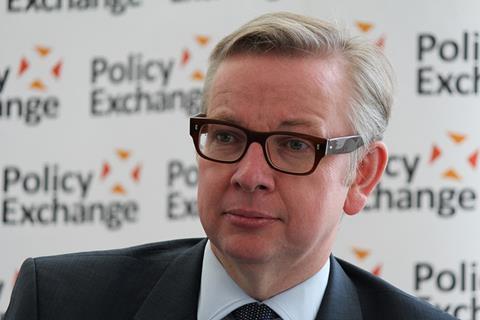The Government has today (11th August) set out its intention to introduce mandatory CCTV in all slaughterhouses in England, under new animal welfare plans announced by Environment Secretary, Michael Gove.

Following a consultation which has now been launched by Defra, CCTV could become mandatory in all areas of slaughterhouses where live animals are kept, and full and unrestricted 24/7 access to CCTV footage for official veterinarians (OVs) could be required.
The new plans would also introduce updated animal welfare codes and guidance, with the first one focusing on welfare standards for chickens bred for meat.
Gove said: "We have some of the highest animal welfare standards in the world and the actions I am setting out today will reinforce our status as a global leader.
"As we prepare to leave the EU, these measures provide a further demonstration to consumers around the world that our food is produced to the very highest standards."
Heather Hancock, chair of the Food Standards Agency, added: "The Food Standards Agency takes a zero tolerance approach to any breaches of animal welfare standards in slaughterhouses. Last year, we concluded that it was time to make CCTV compulsory in slaughterhouses, progress on voluntary adoption having plateaued.
"I and the board of the FSA warmly welcome Defra’s consultation about making CCTV mandatory. We look forward to the introduction of a comprehensive requirement for using, accessing and retaining footage from CCTV in abattoirs. We see CCTV as an invaluable management tool for business owners to help with compliance with official controls and to improve animal welfare standards across the industry."
British Veterinary Association president, Gudrun Ravetz, welcomed the news, adding: “We have been campaigning on this issue for a number of years and this announcement represents a huge win for animal health and welfare in England.
“Mandatory CCTV in all areas of slaughterhouses will provide an essential tool in fostering a culture of compassion that could help safeguard animal welfare and we are particularly pleased to see a commitment to Official Veterinarians having unrestricted access to footage.”
Although he recognised that “the cost of installing CCTV may be a burden for some very small abattoirs”, Ravetz reiterated that it is “important that the animals we farm for food have both a good life and a humane death and CCTV has a key role to play in ensuring these requirements are met".
John Tasker of the British Veterinary Poultry Association (BVPA) commented: “We look forward to cooperating fully with Defra in development and implementation of these new initiatives.
“The British poultry industry has some of the highest welfare standards in the world and seeks to continually update and refine its practices in the light of new research, and to maintain public confidence in the industry.”
Dr. Marc Cooper, head of farm animals at the RSPCA, added: “A key benefit of installing CCTV is improved monitoring and enforcement, leading to a reduction in malpractice and an improvement in animal welfare. CCTV can also be used to demonstrate compliance with standards, a management tool for training and monitoring slaughterhouse staff, and to evidence good practice should allegations be made to the contrary.”
BVA, VPHA and the RSPCA say they have been campaigning for both mandatory and unrestricted 24/7 access to CCTV footage for Official Veterinarians for a number of years.
All of the new proposals will be subject to the consultation. To make your submissions, click here.
Meat Management is also interested to hear readers’ views on the decision. To share your opinion, email editorial@meatmanagement.com.
This story was originally published on a previous version of the Meat Management website and so there may be some missing images and formatting issues.















